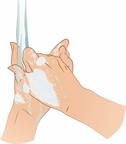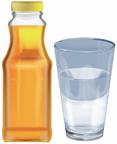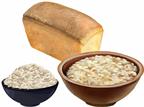Diarrhea, Adult
Diarrhea is frequent loose and sometimes watery bowel movements. Diarrhea can make you feel weak and cause you to become dehydrated. Dehydration is a condition in which there is not enough water or other fluids in the body. Dehydration can make you tired and thirsty, cause you to have a dry mouth, and decrease how often you urinate.
Diarrhea typically lasts 2–3 days. However, it can last longer if it is a sign of something more serious. It is important to treat your diarrhea as told by your health care provider.
Follow these instructions at home:
Eating and drinking
Follow these recommendations as told by your health care provider:
Take an oral rehydration solution (ORS). This is an over-the-counter medicine that helps return your body to its normal balance of nutrients and water. It is found at pharmacies and retail stores.
- Drink enough fluid to keep your urine pale yellow.
Drink fluids such as water, diluted fruit juice, and low-calorie sports drinks. You can drink milk also, if desired. Sucking on ice chips is another way to get fluids.
Avoid drinking fluids that contain a lot of sugar or caffeine, such as soda, energy drinks, and regular sports drinks.
Avoid alcohol.
Eat bland, easy-to-digest foods in small amounts as you are able. These foods include bananas, applesauce, rice, lean meats, toast, and crackers.
Avoid spicy or fatty foods.
Medicines
-
Take over-the-counter and prescription medicines only as told by your health care provider.
-
If you were prescribed antibiotics, take them as told by your health care provider. Do not stop using the antibiotic even if you start to feel better.
General instructions

- Wash your hands often using soap and water for at least 20 seconds. If soap and water are not available, use hand sanitizer. Others in the household should wash their hands as well. Hands should be washed:
After using the toilet or changing a diaper.
Before preparing, cooking, or serving food.
While caring for a sick person or while visiting someone in a hospital.
-
Rest at home while you recover.
-
Take a warm bath to relieve any burning or pain from frequent diarrhea episodes.
-
Watch your condition for any changes.
Contact a health care provider if:
-
You have a fever.
-
Your diarrhea gets worse.
-
You have new symptoms.
-
You vomit every time you eat or drink.
-
You feel light-headed, dizzy, or have a headache.
-
You have muscle cramps.
- You have signs of dehydration, such as:
-
You have bloody or black stools or stools that look like tar.
-
You have severe pain, cramping, or bloating in your abdomen.
-
Your skin feels cold and clammy.
-
You feel confused.
-
You have chest pain or your heart is beating very quickly.
-
You have trouble breathing or you are breathing very quickly.
-
You feel extremely weak or you faint.
These symptoms may be an emergency. Get help right away. Call 911.
This information is not intended to replace advice given to you by your health care provider. Make sure you discuss any questions you have with your health care provider.


